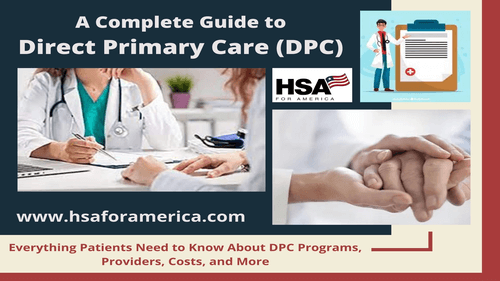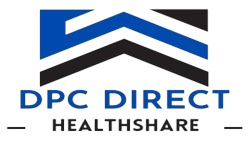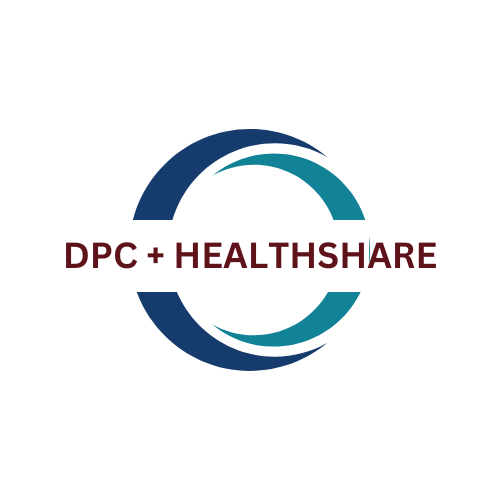Direct Primary Care, or DPC, is quickly becoming one of the most popular and viable alternatives to traditional healthcare.
These membership-based health plans are making routine and preventive healthcare easier and more affordable than they’ve ever been.

Meanwhile, DPC physicians are increased job satisfaction, improved patient relationships, and better patient healtreporting h outcomes across the board.
The purpose of this complete guide to Direct Primary Care is to:
- Introduce healthcare consumers to DPC
- Examine the advantages and disadvantages of the DPC healthcare model
- Explain how to pair a DPC membership with effective but low-cost emergency coverage
- Explore DPC options for small business owners
- Provide resources on how to find a DPC membership in your area
Note: The Direct Primary Care healthcare model is growing rapidly. This page will continue to be updated with the most up-to-date information about DPC, including program options, cost-saving tips, and information about any state or federal changes regarding DPC.
Bookmark this page as your go-to resource for Direct Primary Care (DPC). Stay informed with expert updates, tips, and insights—subscribe to HSA for America’s monthly newsletter today!
About This Guide
Our mission at HSA for America is to empower our clients, friends, and visitors with the information they need to make the best decisions about their healthcare.
The information provided here about Direct Primary Care is for general education purposes only. If you have serious concerns about your healthcare strategy, schedule a time to speak with an insurance professional. These advisory appointments are at no-cost to you, and there’s never an obligation to buy.
Compare Pricing on the Best HealthShare Plans Available
What is a Direct Primary Care Program (DPC)?
Direct Primary Care, or DPC, is an alternative healthcare model where patients pay a flat membership fee in exchange for unrestricted access to a primary care doctor.
With membership costs as low as $80 per month, DPC is becoming a popular and viable way for Americans to maintain their health without having to worry about copays or coinsurance.
DPC is not the same as health insurance. DPC does not include coverage for large or emergency health costs, like a trip to the E.R. or a stay in the hospital due to illness. For this reason, DPC works best in tandem with another form of protection, like healthcare sharing or accident insurance.
Since its inception a few decades ago, DPC has been growing in popularity. Now, in the midst of a global health revolution, DPC memberships are poised to become a critical part of modern, budget-conscious healthcare strategies.
How does Direct Primary Care Work?
Direct Primary Care (DPC) is a straightforward health plan based on membership, specifically designed for routine primary care services. Here’s a breakdown of how it operates:
- Choosing a DPC Physician: The patient chooses a Direct Primary Care physician in their area and signs up for a membership. A flat-rate monthly fee, typically between $75 and $110, is paid directly to the DPC facility.
- Access to Care: The patient enjoys unrestricted access to routine primary, preventive, and chronic care* services. Similar to a health club membership, these patients can access their care services as often as they need.
- Supplemental Coverage: The patient chooses a supplemental plan to cover the things that DPC does not, like ER care, hospitalization, and prescription drugs. Because routine care is covered by the DPC membership, the patient can choose a low-cost option like a high deductible health plan, a health sharing plan, or accident insurance. (We explore DPC-friendly options further down in this guide).
*Not all DPC facilities treat all chronic health conditions; Be sure to check with your DPC provider before signing up.
Advantages of Direct Primary Care |
|
|---|---|
1. Patients Get More Time with their Doctor |
DPC physicians don’t have to worry about insurance paperwork or busywork. The membership model means that every patient gets to spend more time per-visit with the doctor. In fact, current data suggests that DPC doctor appointments are nearly twice as long as traditional primary care. |
2. DPC Memberships Are Highly Affordable |
Most DPC programs are around $100, and some are even less. Many Americans pay more than this for their monthly phone bill, and it is only a small fraction of the cost of a traditional health insurance plan. |
3. Provider Access is Unrestricted |
All DPC programs have different rules, but in general, DPC gives patients unlimited access to their primary care provider. This means that fewer health issues will fall through the cracks, and patients don’t have to skip a needed appointment because they’re worried about a copay. |
4. DPC Pricing is Transparent and Up-Front |
DPC members have a flat fee that is paid monthly. No more leaving the doctor’s office wondering how big of a bill they’re going to stick you with. Simply pay your membership fee regularly and see your physician as much as you need. |
5. Same-Day and Next-Day Appointments are Much Easier to Get |
DPC programs, like health clubs, give members access to routine services as they are needed. This makes it easier for physicians to see their patients on very short notice. A growing number of DPC facilities have a physician on-call 24/7. |
6. DPC Physicians Are Reporting Higher Job Satisfaction Rates |
With more time to spend with patients and less time worrying about data entry or the insurance companies, many DPC physicians are reporting higher job satisfaction rates than ever before. What’s more, there is mounting evidence that Direct Primary Care is the “key to reducing burnout” among primary care physicians. |
7. DPC Facilities Can Offer Additional Programs and Benefits |
In efforts to compete, DPC facilities are starting to offer valuable member benefits that go beyond primary care visits. These can include yoga sessions, nutrition classes, and wellness counseling. |
8. You Can Use HSA Funds to Pay for your DPC Membership starting in 2026 |
Under new IRS rules starting in 2026, DPC membership fees are considered to be HSA-qualified medical expenses. |
Disadvantages of Direct Primary Care |
|
|---|---|
1. DPC Memberships Do Not Cover Emergency Treatment |
If you get in an accident or fall severely ill, your DPC membership will not pay for hospital or ER bills. |
2. DPC Membership Do Not Cover Prescription Drugs |
Most prescription drugs are not covered by DPC memberships. Standalone drug plans and discount programs are available for patients who need them. |
3. Monthly DPC Membership Fees Will Not Count Towards an Insurance Deductible |
Your monthly DPC membership fee is not a qualified health cost when it comes to your insurance plan’s deductible, if you have one. |
How to Use DPC to Save Money and Also Stay Protected
While Direct Primary Care is much more affordable than traditional health insurance, it is not usually enough to protect someone from health costs.
Remember, DPC memberships do not cover hospitalization or emergency room treatment. Many specialist appointments are also not covered.
For this reason, it’s necessary to pair a DPC membership with an additional plan. Fortunately, because DPC pays for all the routine care, patients can choose a less-comprehensive, more-affordable plan. The end result is all-around health protection for much less than just enrolling in a basic insurance plan.
DPC members have two primary options to decrease their risk:
Option One: Pair DPC with a High Deductible Health Plan (HDHP) |
Option Two: Enroll in a Lower-Cost DPC Health Sharing Plan |
|---|---|
|
Lower-premium, high-deductible health insurance plans can be paired with DPC to provide some level of protection against emergency costs. As of 2021, most Americans qualify for additional savings that make HDHP plans more affordable per-month than ever before. (Some can even be $0 per month!). But HDHP plans have the added risk of a high deductible. If you get sick or injured, you could be on the hook for an out-of-pocket deductible of $5,000 or more. |
Anyone who is enrolled in a Health Sharing Plan can also sign up for Direct Primary Care. But in order to truly maximize savings, DPC members should consider a DPC-specific healthshare program. Because there is no need to offer routine health services, these healthshare plans are optimized to be even more affordable. DPC Healthshare options are available through MPB Health, Sedera, and even MediShare. These options are explored further in a later section. |
Healthshare Plans that Work with DPC Memberships
Anyone who is enrolled in a Health Sharing program can also participate in a DPC membership.
Because health sharing plans usually only cover emergency and unexpected healthcare costs, they are a natural fit with the Direct Primary Care Model.
As DPC becomes more popular across the country, an increasing number of health sharing organizations have begun to offer specialized DPC healthshare programs. Because no preventive or routine costs need to be shared, this type of healthshare plan can reduce monthly costs significantly.
DPC Direct |
|---|
| Our DPC Direct healthshare works with an existing DPC membership to maximize savings and increase overall protection. DPC Direct includes a few unique member features including: LifeCare Program (Virtual or face-to-face counseling for personal and work-related issues) & 24/7 telehealth access. |

Sedera |
|---|
| Sedera healthshare members can receive a discount on their membership if enrolled in a qualified Direct Primary Care Membership. |

MediShare |
|---|
| While MediShare does not offer a DPC-specific healthshare option, they do offer cost-sharing eligibility for up to $1,800 of DPC membership fees. This is only for MediShare members who are enrolled in the $12,000 AHP option. |
You can also read our comparison guide to find the best Healthshare plan.

Local DPC + Healthshare |
|---|
| This all-in-one solution combines a membership with a local DPC in your area, with a complementary healtshare program, all for one low monthly price. Read more about this inclusive DPC + Healthshare solution. |

Compare Pricing on the Best Healthshare Plans Available
READ MORE: How to Pair a Health Sharing Plan with your Direct Primary Care (DPC) Membership
Direct Primary Care for Small Business
The low cost and significant benefits of DPC memberships make them a natural fit for small business owners who are looking to offer an employee health benefit.
Many small business owners can get a group DPC membership for as low as $30 per employee (with more standard rated being closer to $70 or $80).
Other benefits of DPC for small businesses include:
- Reduced absenteeism: Employees can communicate with their provider digitally, 24/7, to manage all health needs. Many DPC facilities also offer appointments on weekends and after 5 pm, unlike traditional primary care providers.
- Better employee health: Unrestricted access means that employees can see the doctor as often as they need. This can lead to an improvement in overall health, which has obvious and proven benefits to both productivity and job satisfaction
- Less complicated than group health insurance: A single, flat-rate monthly payment is made directly to the DPC facility … That’s all there is to it.
Where Can I Find A DPC Practice?
Use the map below to find a DPC practice in your area. Note that some may not be accepting new patients at this time.
The drop pins that are Blue are DPC offices with whom we have a personal relationship, and that are currently accepting new patients. You can also see past issues of our DPC Newsletter that we mail out to our DPC Partners. (Attention doctors and patients: if you do not see your DPC clinic on the map, please click here to add your clinic.)
The Direct Primary Care Directory
The Direct Primary Care Directory is a local and national directory that provides free, mobile friendly optimized searching for DPC physicians. In addition to a zip code search, the Directory lets you search by expertise or additional services, like chronic disease management, clinical nutrition, and more.
LINK: The Direct Primary Care Directory
DPC Alliance
DPC Alliance is much more than just a provider directory. This is a multifunctional resource for anyone who is looking to learn more about Direct Primary Care. DPC Alliance also hosts a number of virtual educational events, bringing DPC doctors and healthcare experts online to have meaningful conversations about the future of the DPC model.
LINK: DPC Alliance
Frequently Asked Questions about Direct Primary Care
Q: Why is Direct Primary Care Better?
A: Direct Primary Care can be a better model for routine health needs because of it’s low-cost and high accessibility. The unrestricted structure of a DPC membership encourages patients to see their doctor more frequently, which can lead to significant health improvements.
Q: What is the difference between direct primary care and concierge medicine?
A: Like, DPC, Concierge Medicine is a membership-based practice in which patients get easier and faster access to their physicians. The difference is that Concierge Medicine providers also charge an insurance company for the visit.
DPC physicians do not require payment from an insurance company. Memberships are paid for entirely with a monthly member fee.
Q: What is a direct care provider?
A: A Direct Care Provider is any physician or facility that has decided to operate on the Direct Primary Care (DPC) model. DPC providers are not as common as traditional doctor offices, but they are expanding rapidly across the U.S.
Q: Is direct primary care affordable?
A: Direct Primary Care plans can be significantly less than $100 per month, making them one of the most affordable health strategies available. But because Direct Primary Care doesn’t cover E.R. or hospitalization, it does not usually work as someone’s sole form of healthcare.
Q: How can I find direct primary care near me?
A: There are a number of excellent DPC directories that are adding new physicians and facilities all the time. These include DPC Frontier Mapper, the Direct Primary Care Directory, and DPC Alliance.
Q: Does my DPC membership count towards my deductible?
A: No, Direct Primary Care membership fees do not count as an eligible health expense towards your insurance deductible.
Q: Can I use my HSA to pay for DPC?
A: Tax-deferred HSA funds cannot currently be used to pay for a Direct Primary Care membership. However, it can be used to pay any out-of-pocket expenses, whether that is for a prescription drug, or imaging you need to have done, or if you end up in the ER.
Q: Is Direct Primary Care worth It?
A: Direct Primary Care is a low-cost way to get as much routine and preventive medical care you need, all for one flat monthly rate. DPC can be well worth it for anyone who is enrolled in a health plan that doesn’t include comprehensive primary care benefits. More specifically, DPC is a good match for anyone enrolled in a High Deductible Health Plan (HDHP) or an alternative health plan like Health Care Cost Sharing.
Q: Can I Still Contribute to an HSA if I have a DPC membership?
A: No. Currently, the IRS actually considers DPC memberships to be the equivalent of low-deductible health insurance, thus disqualifying a DPC member from contributing to an HSA.
On June 10th, 2020, the Federal Register published proposed regulations from the IRS, in order to make this official. Section 5B is titled DIRECT PRIMARY CARE ARRANGEMENTS AND HSAS. It explains that the IRS considers a DPC arrangement to constitute “a health plan or insurance that provides coverage before the minimum annual deductible is met.”
In that proposal it also says “These regulations are proposed to apply for taxable years that begin on or after the date of publication of a Treasury decision adopting these rules as final regulations in the Federal Register.”
The treasury has not yet finalized these proposed rules, so some may argue that they don’t yet apply. As always, it would be best to discuss with your tax advisor.
Q: How much does Direct Primary Care cost?
A: The cost of a Direct Primary Care membership can range from as low as $50 to as high as $200. Costs vary depending on location, range of services, and more.
Q: What healthcare services are typically covered by the DPC contract fee?
A: The DPC contract fee generally includes all the primary care services provided within the DPC practice. This means that you will have no additional fees for your routine care, including preventive, wellness, and chronic care services.
However, it is important to note that certain healthcare services, such as specialty care and hospitalizations, will not be included in your DPC membership. So you will need health insurance, or a health sharing plan, to protect you from those expenses.
Q: Do I still need insurance with Direct Primary Care?
A: Direct Primary Care plans are not usually enough to cover a person’s annual medical costs. DPC does not cover ER, ambulance, specialists, or hospitalization, nor does it cover critical prescription drugs. If you get sick or injured, your out-of-pocket costs could be disastrous without some form of health plan in place.
Q: Can I use DPC with Medicare?
A: Yes, Medicare enrollees can also sign up for a Direct Primary Care program. However, DPC membership costs are not reimbursable by Medicare.
Q: What are the Pros and Cons of Direct Primary Care?
Pros:
- Low, flat-rate monthly cost
- No copays or coinsurance
- Unrestricted access to a primary care physician
- No-copay structure of DPC encourages more visits and healthy habits
- Digital, telehealth, and on-demand video communication is available
- Next-day and same-day appointments are easier to get
- Typical DPC visits are nearly twice as long as traditional visits
- DPC encourages better doctor/patient relationships
Cons:
- DPC does not cover E.R., ambulance, hospitalization, or prescription drugs
- DPC does not cover many lab tests and specialist visits that could be ordered by your physician
- There are fewer DPC facilities available (but they are growing fast)
Direct Primary Care in Your State
Future of Direct Primary Care and Healthcare Freedom
At HSA for America, we believe that the most important healthcare freedom is having the option to choose from a wide range of health care alternatives.
Meet Your Free Direct Primary Care Expert
If you need help configuring your health strategy to work with Direct Primary Care, we can help.
Call 800-913-0172 to be connected with a Personal Benefits Manager (PBM). Your PBM is a no-cost health plan expert who can empower you with the tools and resources to take true advantage of Direct Primary Care.
Here are some additional articles on DPCs and healthsharing programs:
- How to Pair a Health Sharing Plan with your Direct Primary Care (DPC) Membership
- Why a Health Sharing Plan is the Perfect Complement to Your Direct Primary Care Physician
- Texas Direct Primary Care Guide – 2026 Update
- Direct Primary Care Directory – 2026 Patients’ Guide [DPC Explained]
- The Complete Guide to Oregon DPC (Direct Primary Care)
- Direct Primary Care for Employers: Pros and Cons Discussed
- Arrow Primary Care Revolutionizes Healthcare Delivery in Bethlehem, Pennsylvania
Here’s the additional page related to this article:
You can also click here to schedule a free consultation.

Wiley is President of HSA for America. He believes that consumers should have choice and price transparency, so they can make the best healthcare decisions for their needs. Read more about Wiley on his Bio page.


